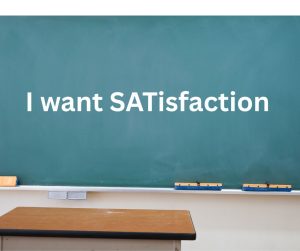Our schools are better, but I’m not SATisfied
 Danny Finkelstein, writing recently in the Times, correctly reported on the improvement in schools in England. He noted how we had risen up the league tables in reading and maths – so much so that we are ‘attracting admiring visits from foreign policymakers keen to see what England is getting right.’
Danny Finkelstein, writing recently in the Times, correctly reported on the improvement in schools in England. He noted how we had risen up the league tables in reading and maths – so much so that we are ‘attracting admiring visits from foreign policymakers keen to see what England is getting right.’
He praised the efforts of Nick Gibb, who was responsible for this improvement, a politician who knew that he had to look long-term to make things better. His was a two-decade journey of examining evidence and then developing policy on the back of it.
He wasn’t obsessed with ideology, as many left-wingers are. I know this because I advised on the 2014 curriculum changes.
Nick Gibb served as schools minister under three prime ministers and has now written a book with Robert Peal, called Reforming Lessons, which I have written about previously.
It is a book that Bridget Phillipson ought to read, but probably won’t, due to her entrenched educational ideology.
Nick could always see that improving education was a long-term process and he looked beyond one parliament. It had taken decades for the progressive approaches to take hold, and they were not going to disappear overnight.
I do remember commenting on this in a discussion with Nick and other experts.
Nick’s team was not going to see the improvements in secondary results straight away because it takes a long time to work it through the system.
PISA rankings are based on the performance of 14-year-olds, but their literacy and numeracy journeys began much further back than that.
It would take longer than five years to see the results internationally.
We are now seeing those results, and I hope the Labour government is not going to return us to failure, but I suspect they might, due to their socialist obsessions and the increasing use of AI in education.
We need to retain a knowledge-rich curriculum and to build on the successes the Conservatives achieved.
There was, however, one part of the system that did not roll out as effectively as it could have under the Conservatives – SATs measurements.
While we are now seeing the improvements at the age of 14, the SATs tests at the end of Year 6 could have shown this much earlier. The system of grading is seriously lacking, and we should return to the old system.
All we currently have is ‘working towards’, ‘working at’ and ‘working above’ national level grades in both literacy and numeracy.
‘Working towards’ is performance up to around 35-40 per cent.
‘Working at’ is performance from 35-40 per cent up to around 79 per cent.
‘Working above is performance of roughly 80 per cent and above.
This is completely inadequate.
Most children will be in the ‘working at’ category, and this sounds good politically, but gives no real information about a child’s performance. Children who are performing at D+ level are in the same category as those performing at B+ level, to use old-fashioned gradings.
These ‘working towards’, ‘working at’, and ‘working above’ grades replaced 18 staging points.
In the past, we had (under a Tory, followed by a Labour government) grading from Level 1 to Level 6, divided further into A, B, and C categories.
It was possible as a teacher to pinpoint a child’s literacy as 5C and their maths at 4A, for example. This system yielded important information for primary schools, secondary schools, LEAs, government, the parents, and the child.
Whilst I applaud the achievements of Nick Gibb, the SATs assessment grading was dismantled, and this was a huge mistake. It felt like a sop to the progressives – ‘we’ll improve the curriculum but weaken the assessments’.
I would like to see the old system brought back, and then we would know far earlier about whether or not things are actually working.
Governments then would not be able to hide behind progressive jargon and years of delay in discovering whether things are working.
ends